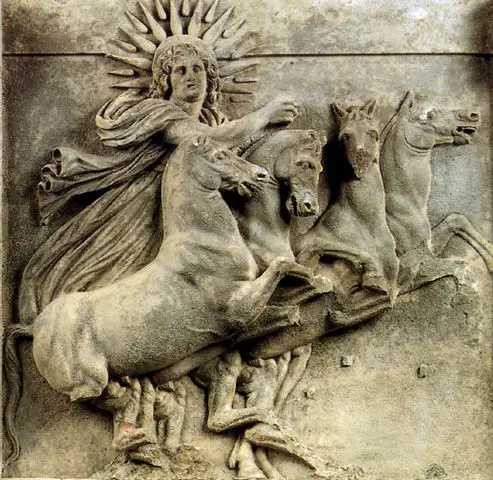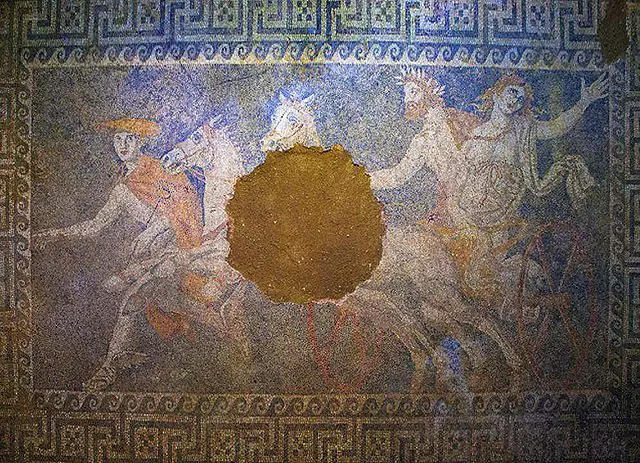| Further Reading | The Ancient Spartan Economy: The 3 Sectors Of Ancient Sparta |
The ancient city of Athens is considered today the birthplace of democracy. However, ancient Athenian democracy is not what we could call today true democracy.
There are 3 reasons why ancient or classical Athens did not have a true democracy. First, the only people allowed to vote in the Athenian democracy were male citizens above the age of 20 who completed military training. Second, Athenian democracy was plagued by oligarchical institutions which created power factions. Third, Athenian democracy was dictated by an upper house called the boule.
Here at The History Ace I strive to publish the best history articles on the internet. If at the end of this article you enjoyed it then consider subscribing to the free newsletter and sharing around the internet.
Without further ado, here are the 3 reasons why Athens did not have a true democracy.
Only Property Holding Male Citizens Older Than 20 Could Vote
One of the main reasons why ancient Athens was not a true democracy was because only about 30% of the population could vote.
There were 3 classes in the society of ancient Athens. First, was the citizens who ran the government and held property. Second, was the metics who were foreign residents of Athens. Third, was the slave population which worked for the property owners of Athens.
In order to participate in the democracy of Athens you would have had to be a member of the citizen class of Athens. Further, you would have had to be a male over the age of 20, have had prior military service, and own your own land.
What this means is that of the nearly 250,000 people who lived in 5th century Athens only about 30,000 could participate in Athenian democracy.
A true democracy is a form of government where every person regardless of social status or wealth has an equal say in their government. This simply was not the case in ancient Athens. If you were not a man, held your own property, had prior military service, and held your own property then you could not have voted in government.
As such this remains one of the main reasons why ancient Athens was not what we could call today a true or direct democracy.
Athenian Democracy Was Plagued By Oligarchical Factions Which Dictated Politics
Another reason that ancient Athens was not a true democracy was because of the power of oligarchical institutions to influence democratic politics.
The history of Athenian democracy is one that is a constant battle between democratic and oligarchical forms of government. A prime example of this can be seen in the actions of Cleisthenes who attempted to institute a more democratic form in 506 BC.
Upon taking power over Athens after being recalled to the city in 506 BC Cleisthenes broke up the traditional tribal system of voting. Here Athenians would be grouped up according to family ties and vote to sway politics in Athens.
Instead Cleisthenes took a map of Athens and broke it up into several sections or demes. Each deme of the city would have their own vote within ancient Athens. This was done to weaken the aristocratic families which had dominated Athens for centuries.
Athens could not get rid of the old aristocratic families and their political power. This was the oligarchy of Athens and it would continue to exist for centuries after democracy was formed. This would overtime create factions within Athenian politics which only served to water down the voting power of the average Athenian.
If ancient Athens was a true democracy then each voting member of the state would have equal power in their vote. Due to the fact that oligarchical factions existed over time, political power would come to pool in factions which in turn would push aside the average Athenian voter.
Simply put, one of the main reasons we can not call Athenian democracy a true democracy is because of oligarchical factions which formed to dominate Athenian politics.
Athenian Democracy Was Directed By An Upper House Called The Boule
A major reason why the Athenian democracy was not a true democracy was because of the boule which controlled much of the political power of the city.
The boule was a group of 400-500 men who were among the richest and most powerful of the voting population in ancient Athens. In order to become a member of this prestigious group of Athenians you would have to be a member of the top 3 property classes in Athens; the Pentacosiomedimni, Hippeis, and the Zeugitai.
This means that only the most elite of Athenian society could become a member of the boule. The members of this body of Athenians each had the capacity to arm themselves for war, had an estate that produced several products, and could gather power around their cause.
The boule itself directed the day to day affairs of the city of Athens. However, their main power came from setting the agenda for the citizens of Athens to vote upon.
In theory the boule could put forth legislation to be voted upon that only they wanted to get voted through. While every voting person of Athens was capable of swaying a vote on a law or action to be taken it was the boule which put forth the agenda to be voted upon.
Several academics such as Claire Taylor have put forth ideas on how much power the boule had in swaying Athenian politics. We simply don’t have enough primary source evidence to accurately know the answer regarding this.
We do know however that the boule did hold some power over Athenian politics because Cleisthenes’s reforms to create the Athenian democracy in the late 4th century BC wanted to remove the boule.
As such one of the main reasons why we can’t call Athenian democracy a true or direct democracy is because it had a council or upper house called the boule which oversaw the political process.
Conclusion
There you have it; an entire article dedicated to the 3 reasons why Athens was not a true democracy.
The study of ancient Athens is a fascinating topic. The city itself was massive with several large complexes built for entertainment, bathing, worship, and military training. At its peak there was a giant series of walls that protected the city and stretched 4 miles to the port of Athens.
Here at The History Ace I strive to publish the best history articles on the internet. If you enjoyed this article then consider subscribing to the free newsletter and sharing around the internet.
Further, you can check out some of the other articles below.
-
How The American Revolution Changed The World

Here is how the American Revolution changed the world. Many people are not aware of just how important this event actually was.
-
Why The Roman People Loved Chariot Racing

Why did the Roman people love chariot racing? Well it all comes down to these 3 reasons.
-
The Design and Color of Roman Chariots

What was the design and color of Roman Chariots? Were they faster or slower then normal chariots? Well here is everything!
Sincerely,
Nick